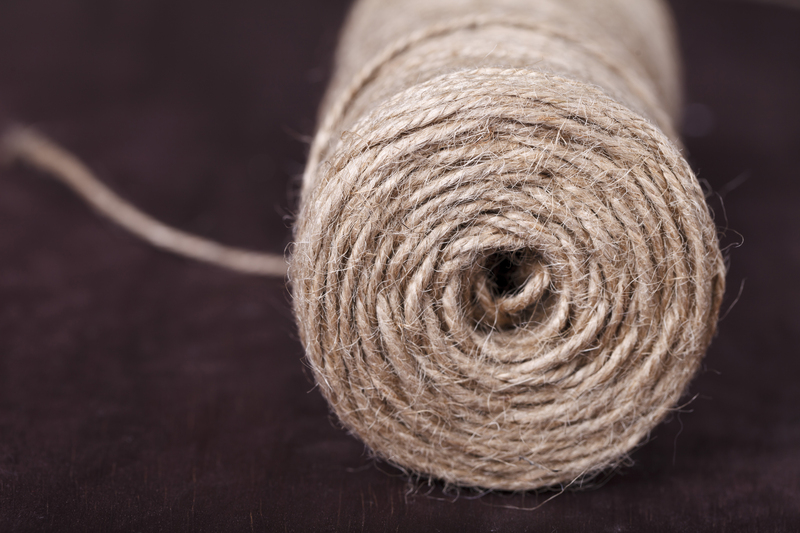9 Garden Hacks for Novice Green Enthusiasts
Posted on 04/06/2025
9 Garden Hacks for Novice Green Enthusiasts
Becoming a successful gardener may seem daunting if you're just starting your journey as a green enthusiast. However, cultivating a lush, healthy, and beautiful garden is more achievable than you think! With the right hacks and smart strategies, even beginners can nurture vibrant greenery and enjoy the therapeutic benefits of gardening.
In this detailed guide, explore nine essential garden hacks for novice green enthusiasts that will help you create a thriving outdoor haven. Embrace these tips, whether you're tending to a small urban balcony or a spacious backyard.
1. Start Simple: Choose Easy-to-Grow Plants
For new garden enthusiasts, the first step to gardening success is selecting beginner-friendly plants. Growing your confidence (as well as your plants) begins with species that are resilient and forgiving.
Here are some top choices:
- Succulents: Require minimal watering and thrive in various conditions.
- Marigolds: Bright blooms that fend off pests naturally.
- Lettuce & Spinach: Fast-growing veggies, perfect for first-time edible gardening.
- Tomatoes: Cherry varieties are especially easy for beginners.
- Lavender: Hardy, aromatic, and supports pollinators.
Tip: Visit your local nursery and ask for recommendations tailored to your region's climate. Choosing plants suited to your environment will greatly boost your garden's success rate.

2. Optimize Soil Health with Natural Amendments
The foundation of a lush garden is the quality of your soil. For novice green lovers, knowing how to enhance soil health is crucial. Ditch expensive fertilizers and try these simple, sustainable amendments:
- Compost: Adds nutrients, improves texture and increases water retention.
- Coffee grounds: Sprinkle around acid-loving plants like blueberries and azaleas.
- Eggshells: Crushed shells provide calcium and deter pests like slugs.
- Banana peels: Chopped and buried peels release potassium for blooming plants.
Pro Hack: Test your soil's pH before starting! Many plants thrive in neutral to slightly acidic soil (pH 6-7). Kits are affordable and easy to use--correcting pH can make a dramatic difference to plant health.
3. Embrace Vertical Gardening
If you have a small space but big gardening dreams, vertical gardening is your friend. Not only does it maximize your growing area, but it also adds stunning visual impact.
Some creative ideas include:
- Wall-mounted planters or old pallets for herbs and flowers.
- Hanging baskets filled with strawberries, tomatoes, or petunias.
- Trellises for climbing green beans or peas.
- Repurposed shoe organizers for growing herbs on balconies.
Vertical gardening hack: Use lightweight soil mixes and ensure proper drainage to prevent root rot.
4. Conserving Water with Smart Irrigation
For novice green enthusiasts, learning to water efficiently can save time, money, and resources. Overwatering is a common pitfall--here's how to avoid it:
- Water early in the morning or late in the evening to reduce evaporation.
- Install a drip irrigation system or use old plastic bottles to create slow-release watering devices.
- Add mulch (wood chips, straw, or leaves) to lock in moisture and suppress weeds.
- Group plants with similar water needs together (a technique known as hydrozoning).
Efficient Watering Tip: Check soil moisture before watering by sticking your finger one inch into the soil. Only water if it feels dry.
5. Create a DIY Compost Bin
Composting not only reduces household waste but also yields nutrient-rich matter for your garden beds. As a beginner green thumb, making your own compost is easier than you might think:
- Choose a container: Old trash bins, wooden pallets, or commercial composters work fine.
- Balance "greens" & "browns": Greens (kitchen scraps, coffee grounds) and browns (leaves, shredded newspaper) create the perfect compost mix.
- Turn or mix your pile every 1-2 weeks to aerate and speed up decomposition.
- Keep your compost moist, but not soggy.
Bonus: Compost supports beneficial microbes and earthworms, creating a vibrant, living soil ecosystem for your plants.
6. Repurpose Everyday Household Items
Who says gardening has to be expensive? Reusing household items is eco-friendly and cost-effective. Here are some smart hacks every beginner gardener can try:
- Egg carton seed starters: Biodegradable and easy to plant directly into the soil.
- Plastic bottles: Cut in half for mini greenhouses or as watering funnels.
- Old spoons & forks: Use as sturdy plant markers.
- Tin cans: Paint or decorate for quirky flower pots.
- Milk jugs: Cut and use as cloches to protect seedlings from the cold.
Pro tip: Get creative! Almost any container can become a plant pot with a few drainage holes.
7. Attract Pollinators for a Healthier Garden
Pollinators like bees, butterflies, and hummingbirds are essential for a flourishing garden. Encouraging their presence means more blooms and bountiful harvests.
- Grow a mix of pollinator-friendly flowers, such as zinnias, cosmos, and sunflowers.
- Let some herbs (basil, dill, mint) flower to attract beneficial insects.
- Avoid pesticides, or choose organic options, to keep pollinators safe.
- Provide a shallow water source like a bird bath or dish with pebbles for butterflies and bees.
Did you know? A single bee can pollinate thousands of flowers a day, making them invaluable to your garden's ecosystem!
8. Use Mulch to Your Advantage
Mulching is a game-changer for new gardeners. Applying a layer of mulch offers several benefits:
- Reduces evaporation, keeping soil moist between waterings.
- Suppresses weeds naturally, saving you time and effort.
- Protects plant roots from temperature swings.
- Gradually breaks down and boosts soil nutrition.
Mulch Hack: Use grass clippings, shredded leaves, or bark chips--just avoid piling mulch against plant stems to prevent rot!

9. Maintain a Simple Garden Journal
Keeping a garden journal is an underrated but invaluable hack for new green enthusiasts. Record your experiences, jot down what you plant, track weather patterns, and note successful (or less successful) crops.
- Draw basic layouts to remember what's planted where.
- Record planting and harvesting dates for future reference.
- Note pests, diseases, or weather events that impacted your garden.
- Jot down creative ideas or wish lists for next season.
Why journal? Regular note-taking helps you spot trends and improve your garden's performance year after year.
Conclusion: Cultivate Your Green Passion with Confidence
You don't need a green thumb from birth to enjoy gardening. With these 9 garden hacks for novice green enthusiasts, anyone can start cultivating a thriving, rewarding garden. From choosing beginner-friendly plants and optimizing soil, to conserving water and attracting pollinators, every tip supports your growth into a more confident, savvy gardener.
Remember, gardening is a journey of discovery. Every success and mishap is an opportunity to learn and improve. Roll up your sleeves, embrace these beginner gardening hacks, and watch your outdoor space--and your passion--bloom!
Ready to begin your gardening adventure?
Share your favorite garden tips or ask for advice in the comments below! Happy gardening!


